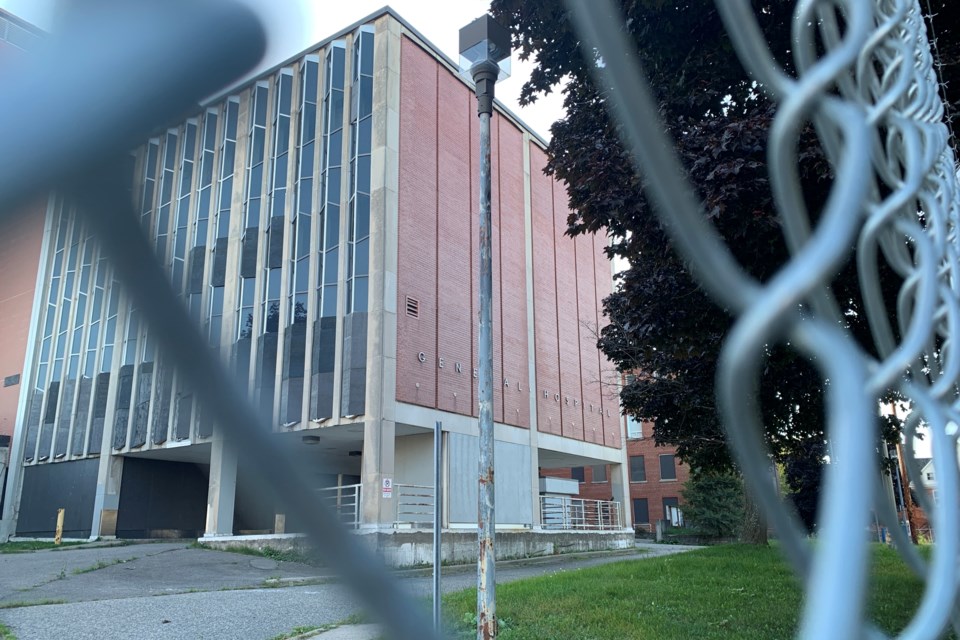Halfway through his four-year term as mayor, Matthew Shoemaker is using his latest self-assessment to defend the reasons behind council's decision to purchase the former hospital property, admitting it is one of a number of missed opportunities he and city council are trying to overcome.
Shoemaker's latest report is his fourth as mayor. He has published the reports to his website every six months since he entered office in 2022.
He said Sault Ste. Marie’s history is ripe with examples of missed opportunities.
"From the prime property of the old hospital being left to deteriorate for a decade, to the unrealized potential of the Gateway site, to the decades of talk - but lack of action - about the Port of Algoma development, the list of missed opportunities is understandably frustrating," said Shoemaker, adding that city council is finally moving beyond just talking about those opportunities.
On Oct. 1, council agreed to spend $4.75 million to buy the former Sault Area Hospital buildings on Queen Street East and the waterfront property they stand on.
In his report, Shoemaker admitted the cost to purchase the property wasn't ideal, but it was necessary and will allow the site to transform from a costly eyesore into a source of revenue and activity. He also noted the city's $6 million 2023 budget surplus made funds available for the purchase without a tax increase for residents.
He expects the sale price for the property after demolition will be about $2 million, much less than the cost of purchasing and demolishing the building. But Shoemaker said the city is taking a long view of the project and will recover its investment over about a 10-year period if a high-density building is put up.
"There was no perfect option, but we chose the path that offered a clear plan with the shortest possible timeline for a return-on-investment," he said.
Shoemaker said in the report the former hospital site plays a key role in unlocking a prime waterfront asset for future development. He said the years-long legal battles and by-law enforcement cost the city nearly $100,000, in addition to 400-plus staff hours.
That doesn't include the $30,000 estimate from the city's building division for money spent on contractor invoices to make repairs the former owner did not make
"The decision to buy these properties was necessary to ensure their demolition and pave the way for redevelopment," said Shoemaker. "I am committed to taking action to ensure these facilities are demolished and redeveloped."
The city is already seeking proposals from companies to demolish the buildings on the property. The city estimates demolition will cost an additional $4.75 million.
"After demolition, we are seeking proposals to develop the site with new residential or commercial units, with permits submitted within a maximum of five years. Proposals that include earlier development will also receive additional scoring," said Shoemaker.
In an email, Shoemaker's communications and policy advisor Jordan Allard clarified the expected timing of the sale and demolition and said the sale price could be between $2 million and $2.5 million.
"The sale is expected to be completed before demolition, with parameters outlining a timeline for demolition by the successful proponent, who would cover the cost of demolition," said Allard.
Shoemaker estimates over 20 years, the initial investment by the city could generate between $5 million and $15.3 million, presumably through devices like property taxes and permits.
"This return on investment is worth pursuing, especially as we resolve a long-standing problem in the process," Shoemaker said.
